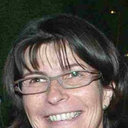mTOR-dependent abnormalities in autophagy characterize human malformations of cortical development: evidence from focal cortical dysplasia and tuberous sclerosis.
Keywords
Abstract
Focal cortical dysplasia (FCD) is a localized malformation of cortical development and is the commonest cause of severe childhood epilepsy in surgical practice. Children with FCD are severely disabled by their epilepsy, presenting with frequent seizures early in life. The commonest form of FCD in children is characterized by the presence of an abnormal population of cells, known as balloon cells. Similar pathological changes are seen in the cortical malformations that characterize patients with tuberous sclerosis complex (TSC). However, the cellular and molecular mechanisms that underlie the malformations of FCD and TSC are not well understood. We provide evidence for a defect in autophagy in FCD and TSC. We have found that balloon cells contain vacuoles that include components of the autophagy pathway. Specifically, we show that balloon cells contain prominent lysosomes by electron microscopy, immunohistochemistry for LAMP1 and LAMP2, LysoTracker labelling and enzyme histochemistry for acid phosphatase. Furthermore, we found that balloon cells contain components of the ATG pathway and that there is cytoplasmic accumulation of the regulator of autophagy, DOR. Most importantly we found that there is abnormal accumulation of the autophagy cargo protein, p62. We show that this defect in autophagy can be, in part, reversed in vitro by inhibition of the mammalian target of rapamycin (mTOR) suggesting that abnormal activation of mTOR may contribute directly to a defect in autophagy in FCD and TSC.


